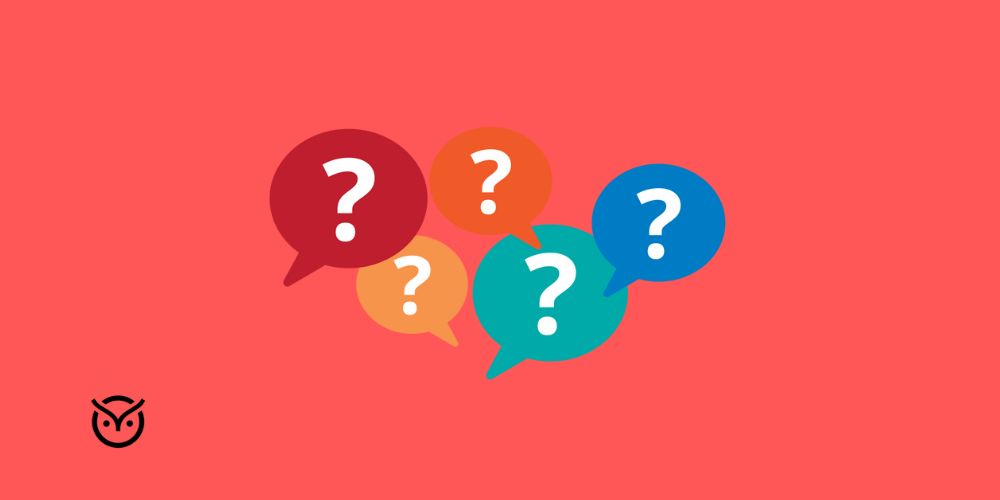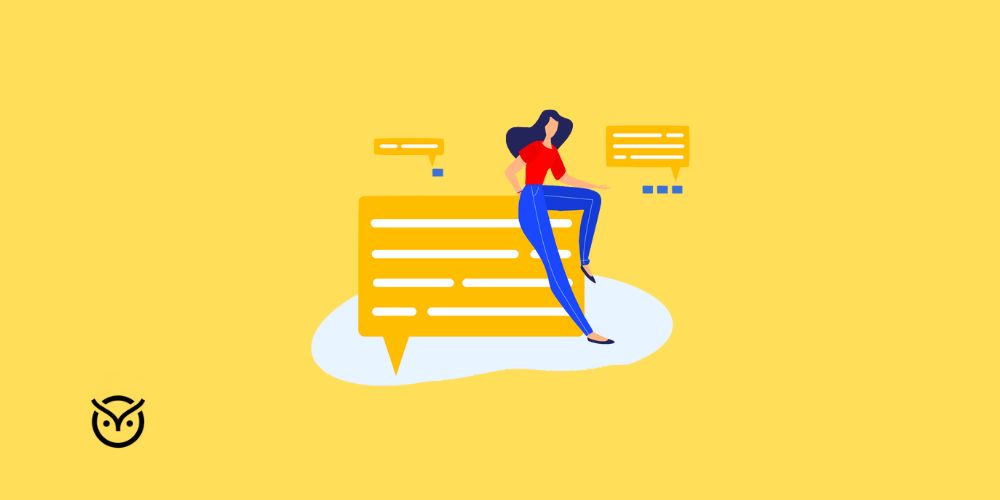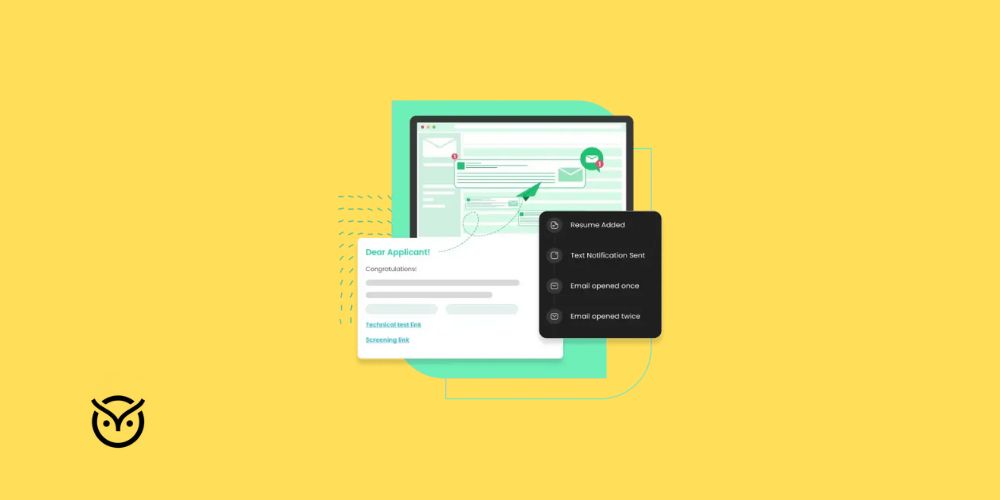
TL;DR
- Visualize success to boost confidence
- Use mindful breathing to calm nerves
- Adopt a growth mindset over perfection
- Research company and role for clarity
- Plan outfit, route, and setup early
- Practice stories, not scripts
- Journal to clear anxious thoughts
- Use positive self-talk
- Sleep well before interview
- Avoid excess caffeine and sugar
- Remember interviews are two-way
So you’ve landed the interview. Cool. But here’s the twist. It’s not just about what you say. It’s about how you show up. Your brain? It’s already spinning. Nerves. Doubt. That voice telling you to fake a cough and cancel. Don’t. This is where how to mentally prepare for an interview turns into your secret move. You want to walk in sharp, focused, and unshakable? Start with your mindset. That’s the real prep.
This blog will walk you through how to prepare mentally for an interview, why it matters, and exactly what to do before the big day. Whether it’s your first interview or your fiftieth, these steps will help you show up sharp, focused, and ready to own the conversation.
Why is it Important to Mentally Prepare for an Interview?
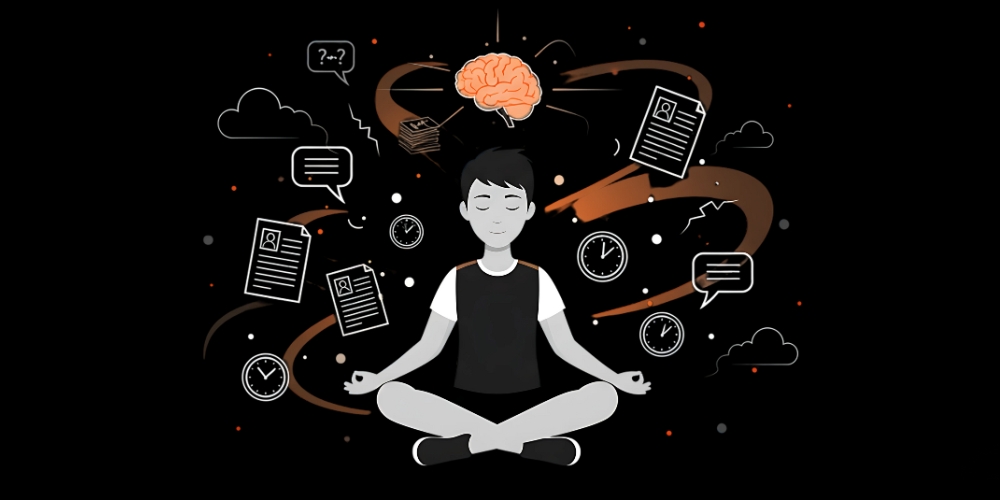
Most people obsess over their resume, their outfit, or memorizing answers like it’s a school play. But they forget the real game-changer. Your mindset.
Here’s the truth. If you’re not mentally ready, none of the rest matters. When you actually prepare your mind for the interview, you don’t just calm your nerves. You show up sharp, listen better, think on your feet, and connect.
When things go off-script, most people freeze. You won’t. You’ll pivot. You’ll adjust. That’s the line between just getting through the interview and actually running it. Mental prep isn’t some bonus tip. It’s the cheat code. Use it.
Drag each mental habit into the right category.
Helpful
Harmful
11 Ways to Mentally Prepare for Your Job Interview
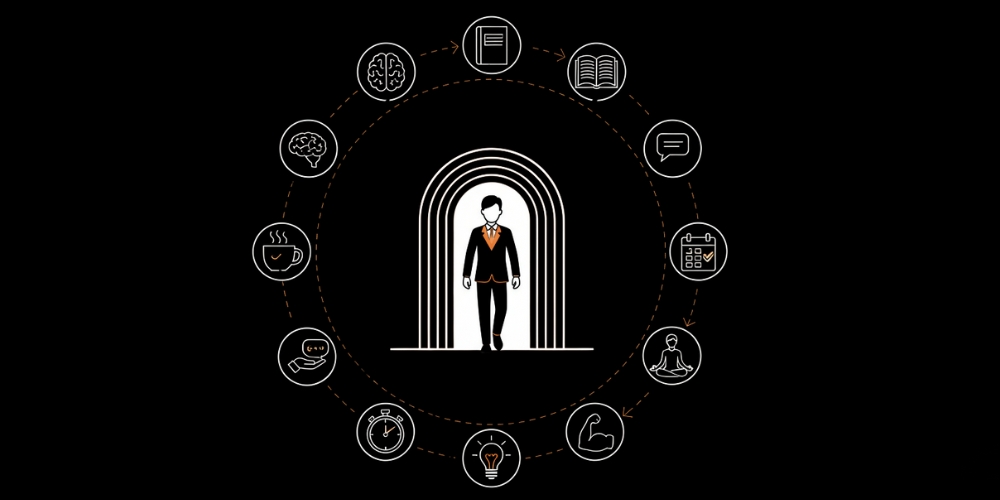
Below are 11 no-nonsense ways to lock in your mindset and keep it steady.
1. Visualize Success
Don’t just rehearse the questions. See yourself owning them. Close your eyes. Picture walking in, shaking hands, and answering like a boss. This isn’t fluff. Top athletes use visualization to crush pressure. You can too. It rewires your brain to expect a win. So start seeing it before you say it.
2. Practice Mindful Breathing
Don’t sleep on this. Box breathing works. Breathe in for 4, pause for 4, breathe out for 4, pause again for 4. It calms your nerves fast. If you’re serious about how to prepare mentally for an interview, start with your breath.
3. Shift to a Growth Mindset
Stop chasing perfection. It’s a trap. Interviews aren’t about perfection. They’re about progress. Carol Dweck nailed it with her growth mindset research. When you treat interviews like learning moments, you perform better, bounce back faster, and stop melting under pressure. That’s how winners think.
4. Get Familiar with the Company and Role
Confidence comes from clarity. Study the company’s mission, culture, and recent news. Understand the role beyond the job description. When you know the context, your answers are sharper and so is your confidence. Bonus: it shows you actually care.
5. Plan Your Day Before the Interview
Decide your outfit, route, tech setup, and meals in advance. Eliminating day-of decisions keeps your brain focused on what matters. This simple prep trick is a key part of how to mentally prepare for an interview, especially for early-morning interviews.
6. Rehearse, But Don’t Memorize
Practice key stories, not scripts. Rigid answers make you sound robotic. Instead, use frameworks like STAR (Situation, Task, Action, Result) to structure your responses naturally. Even better, practice with a friend so you can get feedback, adjust your tone, and sound more conversational.
7. Journal Out Your Thoughts
Interview anxiety kicking in? Grab a pen. Write down everything clogging up your brain. The doubts. The what-ifs. The weird imaginary disasters. Journaling clears the mind so you can focus on what actually matters. It’s not poetry. It’s maintenance for your mindset.
8. Use Positive Self-Talk
Catch yourself when you think, “I’m going to mess up.” Flip it. “I’m qualified and I’ve prepared.” This isn’t toxic positivity. It’s mental training. Replace fear-based thoughts with factual affirmations.
9. Get Enough Sleep the Night Before
Sleep isn’t optional. It’s interview fuel. It boosts memory, mood, and focus, which you’ll need the minute they say, “Tell me about yourself.” The Sleep Foundation says adults getting less than 7 hours a night are more likely to feel mentally off. Translation: sleep like it’s your secret strategy. Because it is.
10. Limit Caffeine and Sugar
This isn’t the time to experiment with triple-shot lattes or mystery energy drinks. Too much and you’re jittery. Too little and you’re yawning mid-answer. Stick to what your body knows. Balanced energy and a clear head are key to mentally preparing for interview success without crashing halfway through.
11. Remind Yourself: It’s a Two-Way Street
You’re not just being evaluated. You’re also deciding if this job is a good fit for you. This mindset shift can reduce pressure and make you feel more in control, which is a crucial part of how to mentally prepare for interview situations.
Mental Prep Checklist
Tick off the steps as you go. 0/11 completed
Post-Interview Mindset Tips
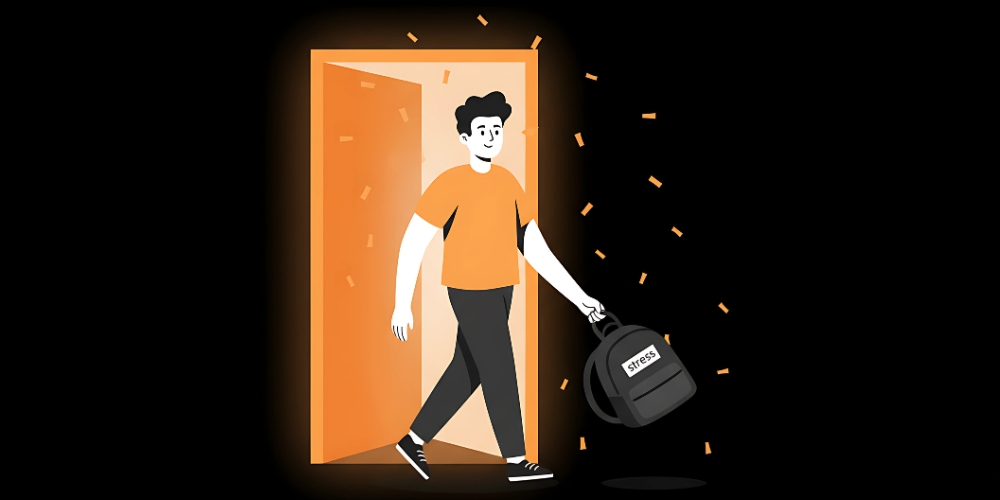
You did the prep, showed up and spoke your truth. Now what? Here’s the part most people forget. The interview might be over, but your mindset still matters.
Don’t Overanalyze Every Word
The mental replay is tempting. You start questioning every pause, every “um,” every eyebrow raise. Stop. Interviewers don’t remember half the things you think they do. Overthinking only drains the energy you could use moving forward.
Take what you learned, and let the rest go. The goal isn’t to relive the interview. It’s to move past it.
Reflect, Don’t Regret
Once the interview ends, write down what you nailed and what you’d improve next time. That’s it. No self-blame, no emotional spiral. Reflection helps you grow; regret traps you. Treat every interview as a free masterclass in communication and composure. Each one makes you sharper.
Detach from the Outcome
The second you click “Leave Meeting” or walk out the door, your control ends. The decision isn’t yours anymore and that’s okay. Detach from needing a yes. When your worth doesn’t hang on one interview, you come across more confident and grounded in the next one.
Keep Your Momentum
Rejections aren’t the end. They’re reminders that you’re trying. Keep applying, keep connecting, and keep improving. Confidence is built from consistency. Stay in motion. That’s how you win over time.
Staying mentally grounded after an interview is just as important as preparing before it. Growth happens in the gap between “thank you” and “you’re hired.”
Post-Interview Thought Quiz
What’s the first thought that hits you after an interview?
Common Mistakes to Avoid When Mentally Preparing
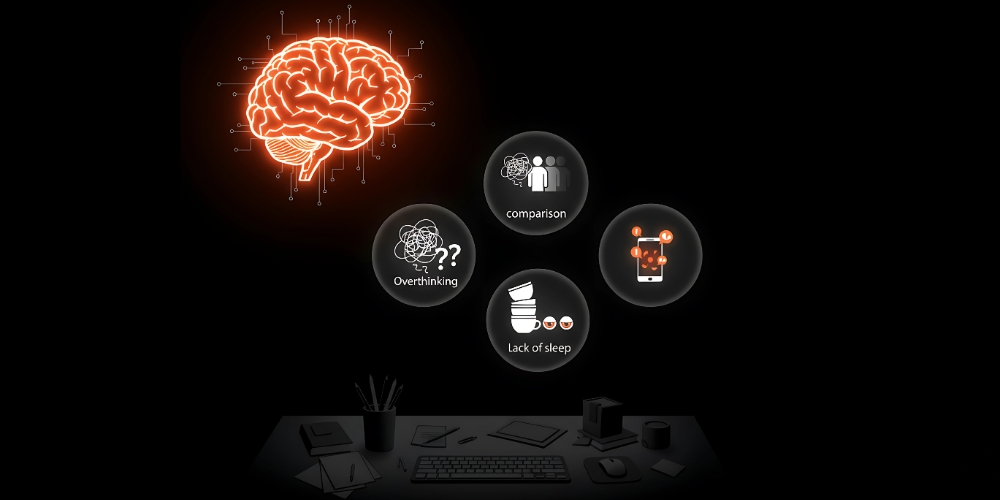
Even with the best intentions, people mess this part up. Here’s what to avoid when getting your head right before the interview.
Over-Rehearsing Answers
You’re not auditioning for a play. Memorized answers sound flat and fake. The moment the interviewer asks something unexpected, your brain freezes. Instead of scripting, prepare key points and stay flexible. Authentic beats perfect, every time.
Comparing Yourself to Others
Scrolling through LinkedIn before your interview? Big mistake. Everyone looks flawless online. Comparing yourself right before a big moment is like tripping before the race even starts. Focus on your progress and preparation, not on someone else’s highlight reel.
Ignoring Rest and Food
A tired brain can’t think clearly. Skipping meals or staying up until 2 a.m. kills focus. Your mental energy depends on your physical state. Eat something balanced, hydrate, and sleep like it’s part of the interview process because it is.
Brushing Off Mental Prep
Most people think confidence comes from fancy suits or perfect resumes. It doesn’t. It comes from how steady your mind feels under pressure. Skipping mental prep means you walk in nervous, reactive, and distracted. Take five minutes before the interview to breathe, visualize, or journal. It changes everything.
Focusing Only on Outcomes
When your entire confidence depends on hearing “You’re hired,” you lose power. The real win is showing up prepared and calm. Treat every interview as practice for your future and not judgment on your worth. The right job will match your energy, not drain it.
Avoid these mistakes and your mind will be clear enough to handle whatever the interview throws your way.
Pre-Interview Reset Button
Need a quick confidence boost before your interview?
Conclusion
Learning how to mentally prepare for an interview isn’t just about calming your nerves. It’s about showing up as your best, most focused self. By building the right mindset before the conversation even starts, you give yourself a clear edge. Preparation fuels confidence, and confidence turns interviews into opportunities. So take a breath, trust your prep, and walk in knowing you’ve already done the hardest part.
FAQs
What’s the best way to boost confidence before an interview?
Confidence starts with preparation. Know your key stories, research the company, and practice self talk that reinforces your strengths. A quick power pose or visualization exercise can reset nerves and lift your energy before you step in.
Should I meditate before interviews?
Yes, if it helps you focus. Even a five minute breathing or mindfulness session before the interview can clear mental clutter and calm anxiety. You do not need to sit cross legged. Breathe slowly, stay present, and center your attention.
How do I stay positive if I’ve had past rejections?
Treat rejection as redirection. Every interview sharpens your approach and builds resilience. Review what you learned, tweak what did not work, and move forward. One no does not erase your skills. The right yes is ahead.

